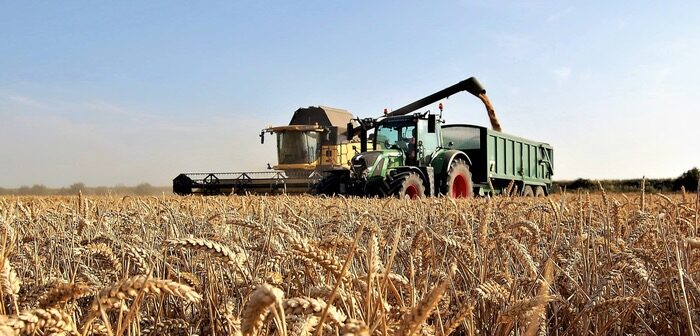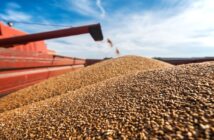Markets took a bit of a shock yesterday (Thurs 13 July), mainly due to a bearish US crop data as predicted US wheat production was raised by about 2m tonnes and despite the reduction in corn yield projection, both production and end-stocks came in higher than trade estimates.
Whilst global wheat stocks were trimmed, global corn stocks were raised. The price action in Chicago following the release, provided additional spill over pressure into the wheat complex. Weather will continue to be a factor, as US spring wheat crop ratings continue to deteriorate, and many believe the corn yield could reduce further, given the current weather pattern across much of the US mid-west – but for now, the expectations of bigger crops are turning market sentiment bearish.
EU markets followed the US lower, resulting in a week on week fall in prices of €6/t (MATIF Dec23). Whilst EU harvests have commenced, recent weather conditions have led to prospects being slightly lowered from earlier estimates. However, the French ministry reported that they see this year’s soft wheat crop at a 2-year high of 35m tonnes, with yields being reported at their highest since 2019. Rains in June aided crops, although they have caused some lodging, the ministry added.
Approach to Putin
ADM are claiming that over the past weeks, the market has been anticipating that the Black Sea Grain Initiative would not be extended past next week. However, in what appears to be a ‘cave-in’, the UN were reported to have asked President Putin to extend the deal in exchange for access to SWIFT (International payment system). This has been one of the main demands by Russia in holding back any long-term extension, and if agreed, would be a major positive step in getting the deal extended.
UK prices have fallen £3/t week on week (ICE Nov23) with the trade still trying to absorb the higher-than-average crop carry-out. The discounted harvest price still isn’t producing enough major selling opportunities, as UK supplies remain largely uncompetitive, and EU destinations remains gorged on cheaper grain alternatives. Not helping is the fact that the pound sterling is now at a 15-month high against the US dollar, and with the Bank of England still potentially looking at raising rates further to control inflation, this does not bode well for a country with a large surplus and another big crop looming. ADM point out that the UK will need to get export competitive, not only during the harvest, but also in the deferred positions, and with sterling’s appreciation, this will place more pressure on ex-farm prices.




